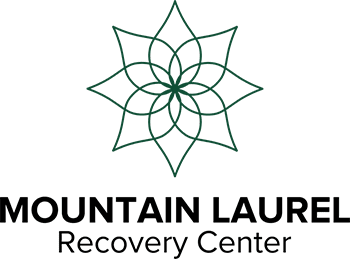 “It’s hard to come out of rehab knowing everyone is watching you and trying to examine your behavior with hope and with suspicion, and it’s hard to be the different person you need to be while all that is going on.” ~A recovering alcoholic
“It’s hard to come out of rehab knowing everyone is watching you and trying to examine your behavior with hope and with suspicion, and it’s hard to be the different person you need to be while all that is going on.” ~A recovering alcoholic
You know from talking with your loved one throughout their treatment that they’ve made tremendous progress, and you’re excited to have them back home. You’re also nervous. What if it doesn’t stick?
It’s normal for families to be nervous. But it’s also important to remember that your loved one is nervous, too. They have detoxed from alcohol or drugs in rehab, but they have also discovered what led to their addiction and planted the seeds for long-term change. In short, your loved one is not the same person minus the addiction. Your loved one is different. And to sustain their recovery, they have to learn how to navigate this different person they have become around the family and friends who expect them to remain essentially unchanged.
6 Ways to Give Your Loved One Permission to Change
- Get to know them. Treat them as a welcome visitor at first. Ask them about their schedule. When do they want to eat; what do they want to eat; when do they want to sleep; what do they like to do when they’re not at work; what movies, television, books, and magazines do they enjoy; what hobbies would they like to develop, etc. This is not to say that you should barrage them with questions—just be aware that all of the above habits and preferences may have changed for your loved one during rehab.
- Examine your expectations. Don’t expect your loved one to be able to pick up where they left off and continue smoothly from there. The end of rehab is the beginning of working through problems that were set aside in the time of crisis. As Muhammad Ali said, “I don’t count my sit-ups; I only start counting when it starts hurting because they’re the only ones that count.” Now that your loved one is home, their recovery is just beginning.
- Be prepared for communication. A person coming out of a high-quality treatment program will have learned the importance of talking through everything; they will no longer be willing to let resentment build or boundaries slide—or to let you fake being happy. Instead, they’re likely to throw everything on the table and expect you to engage with them, to talk through the tensions that build and the boundaries that need to be reset.
- Give your loved one the chance to support and encourage you. You might be afraid to share any of your worries, fears, or challenges with your loved one because you don’t want to add to the burden of their recovery. But relationships—especially partnerships and marriage—are built on equal sharing and trust. Your loved one has wisdom and love to share. Give them the chance to share it with you.
- Go with the flow. Try to maintain a sense of priorities. It might be that your loved one needs to find a new job because their old one triggered their using habits. They might need to find new friends; if your loved one is your partner or spouse, you might need to find new friends as a couple. You might need to allow your loved to eat differently or sleep at different times than you’d prefer. Communicate your needs to your loved one, but also keep your perspective. What can you let go of in support of developing a more authentic, intimate relationship?
- Continue to work on yourself. Addiction is a family disease. It will be hard when your loved one returns to know how to handle some of the conflicts and expectations mentioned above. You might get confused trying to figure out when to “go with the flow” and when to stand your ground. Partnerships that formed during addiction may not have any solid grounding and need to be rebuilt from the ground up. Consider working with a therapist to help you learn how to honor your own needs while encouraging your loved one’s recovery.
At Mountain Laurel Recovery Center, we stay in contact with our alumni to make sure they’re keeping up with their recovery goals, working on their relationships, and staying healthy. If your loved one is an alum of MLRC (or even if they are not), you may call us at any time to express concerns or to seek advice on the recovery process.

 “It’s hard to come out of rehab knowing everyone is watching you and trying to examine your behavior with hope and with suspicion, and it’s hard to be the different person you need to be while all that is going on.” ~A recovering alcoholic
“It’s hard to come out of rehab knowing everyone is watching you and trying to examine your behavior with hope and with suspicion, and it’s hard to be the different person you need to be while all that is going on.” ~A recovering alcoholic